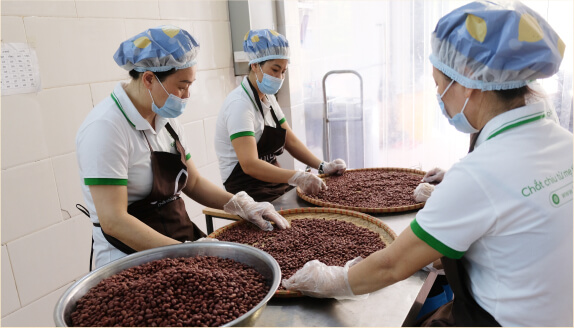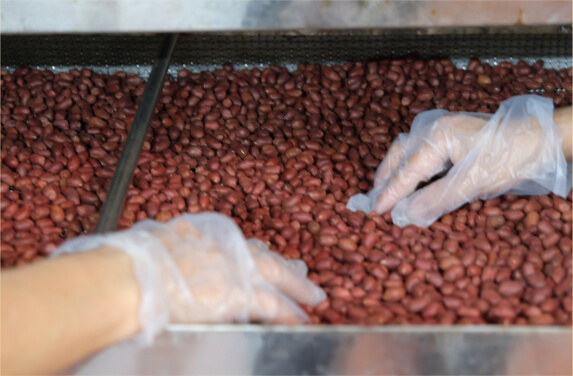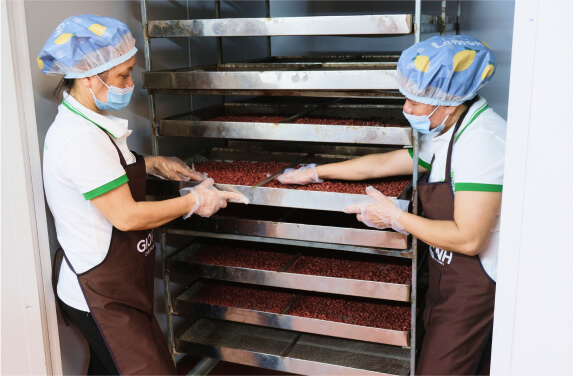To develop sustainable organic material area, Hanuti collaborates with local governments in selected areas where local farmers cultivate in the traditional methods (primarily using manure) and suffer from limited impact of air and water pollution
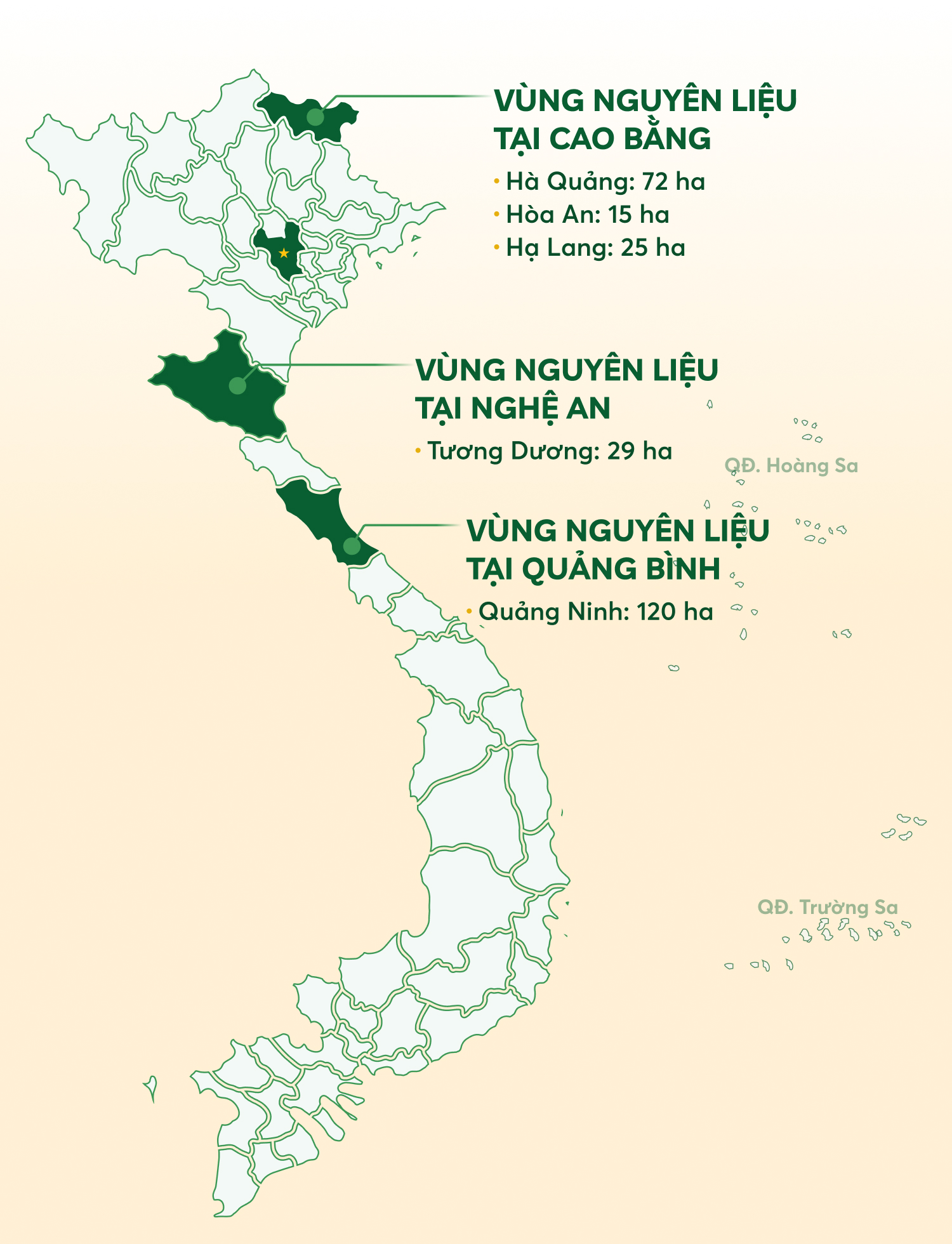





The organic material areas of Hanuti in Cao Bang reside in a mountainous region with the height of over 1000m above sea level, an average temperature of 5-7 degree Celcius lower than plain areas, and a large temperature amplitude between day and night. Especially, there are no rivers, streams or creeks in this region; all daily activities and cultivation rely on rainfall.
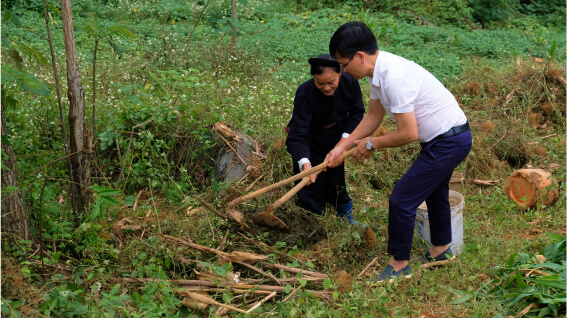
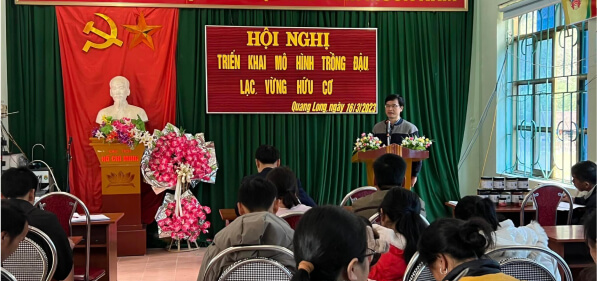
Peanuts, sesame and other beans are cultivated in valleys of dirt and rugger rocks, underneath limestone mountains that house natural forests on top. These soil conditions create the unique aromatic, nutty and sweet flavors of Hanuti’s organic seed and nut products.

Additionally, 100% of the regional population are ethnic minorities (Nung, Tay, Dao) with generations of experience in cultivating a wide variety of nuts, beans and sesame with a traditional cultivation method, which provides enabling conditions for Hanuti to develop organic grain material areas.
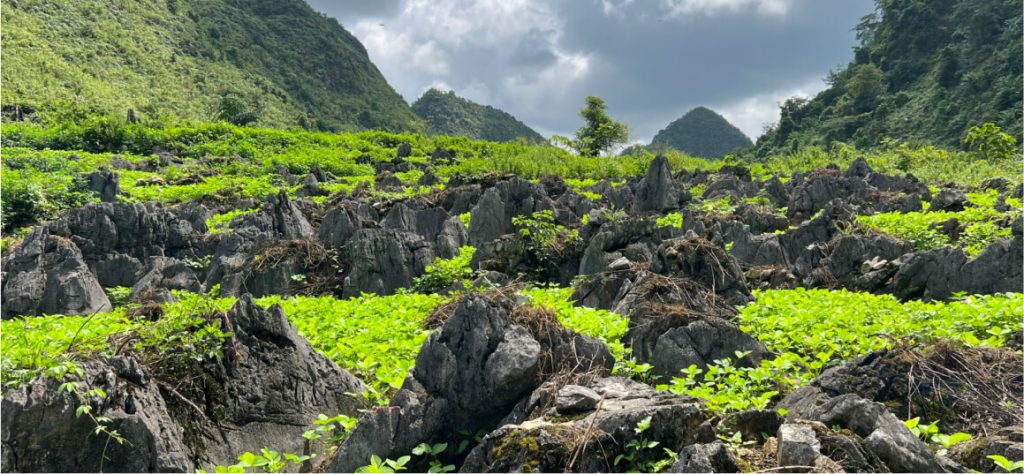
Hanuti’s organically converted material areas in Nghe An reside in a high mountainous region where farmers cultivate on hillsides with steep slopes in unfavorable weather conditions due to the impact of Lao winds. The people here are 100% Thai and Kho Mu ethnic people who are hard-working, studious and have a high sense of responsibility.
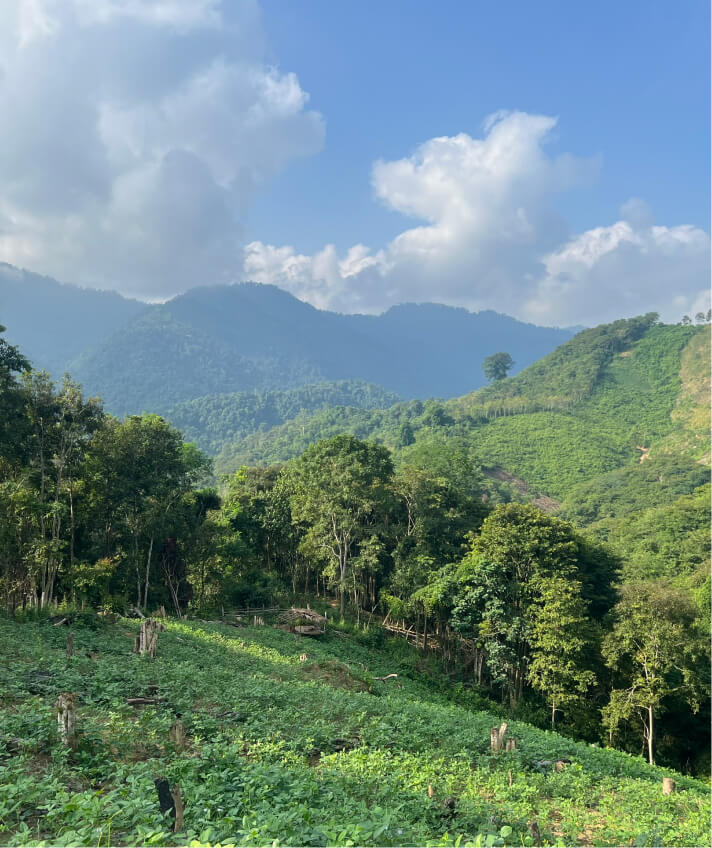
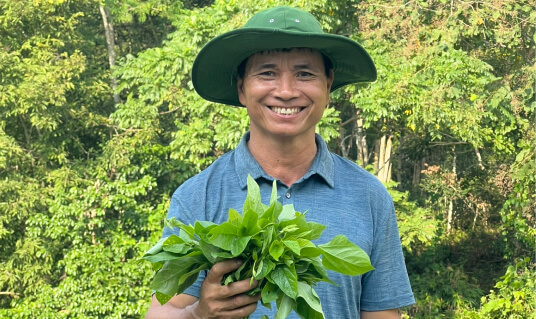
During their cooperation with Hanuti, local farmers strictly follow the production processes of beans, peanuts, and sesame in accordance with international organic standards. From the initial 29 hectares of organically converted farmland, it is expected that by 2024, Hanuti’s material areas here will be expanded to 50 hectares, of which 29 hectares of converted area are to be assessed for organic certifications in 2024.
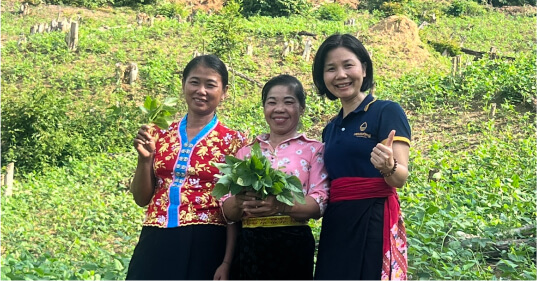
In valleys engulfed by limestone mountains, surrounded by dense natural forests lie Hanuti’s rich material areas with more than 120 hectares of arable land. Unlike Cao Bang and Nghe An, material areas in Quang Binh are quite flat, convenient for large-scale and concentrated farming.
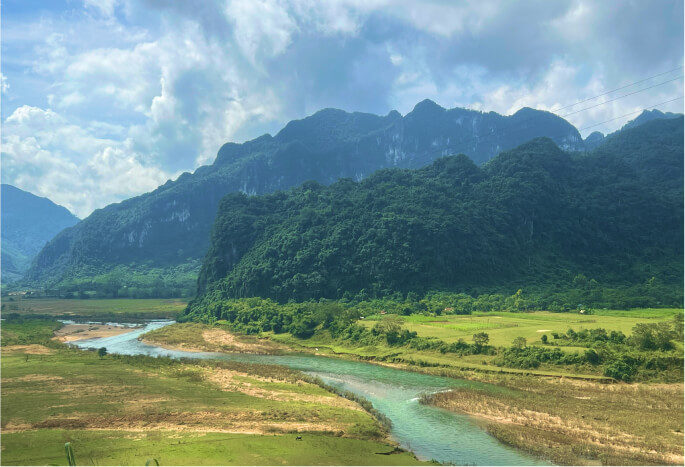
With a long tradition of cultivating peanuts, beans, and sesame, local farmers have experience in cultivating these varieties. Along with that, every year, the land is enriched with a copious source of nutrients with minerals from limestone mountains and humus from natural forests, creating grain products that are not only delicious but also rich in nutrients.
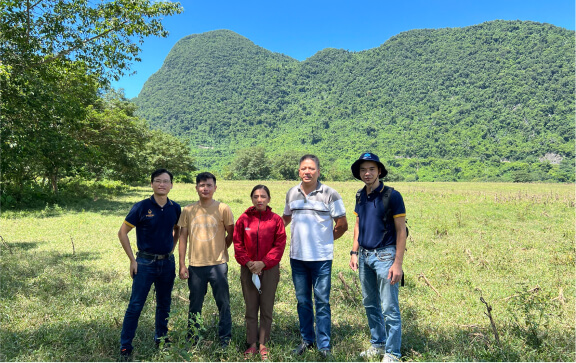
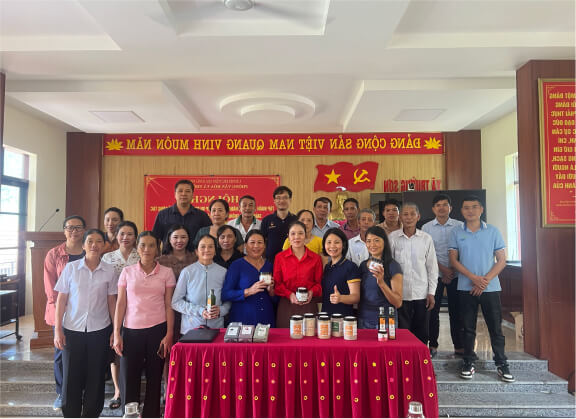

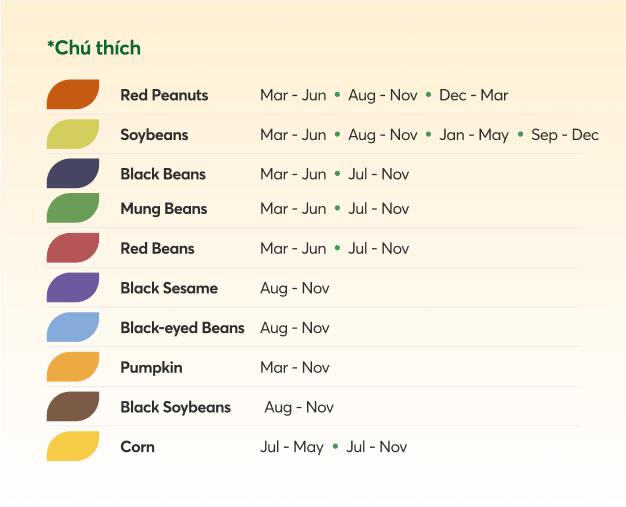
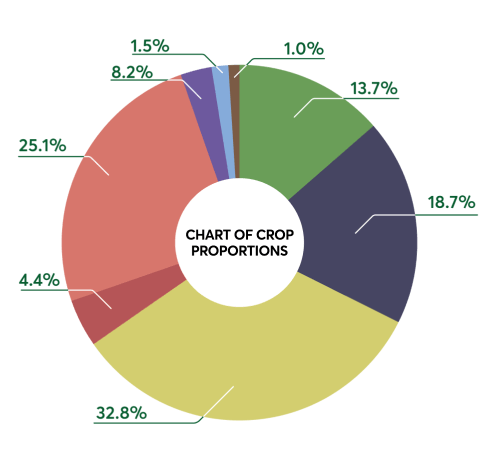
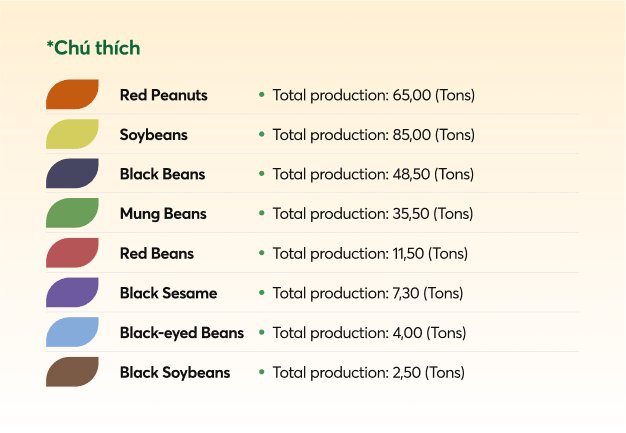
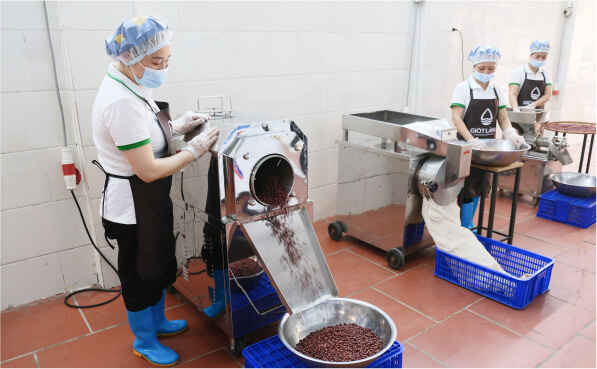
Production factories for nutritious products from organic seeds in Yen Ha Village, Hai Boi Ward, Dong Anh District, Hanoi: Satisfies food safety and hygiene standards, internation organic standards of the U.S. (USDA), Europe (EU) and Japan (JAS).
HANUTI’s factories are equipped with a closed-loop circular production chain from input to output. Simultaneously, product processing is implemented by highly skilled workers under strict supervision of the Product Quality Assurance Department.
